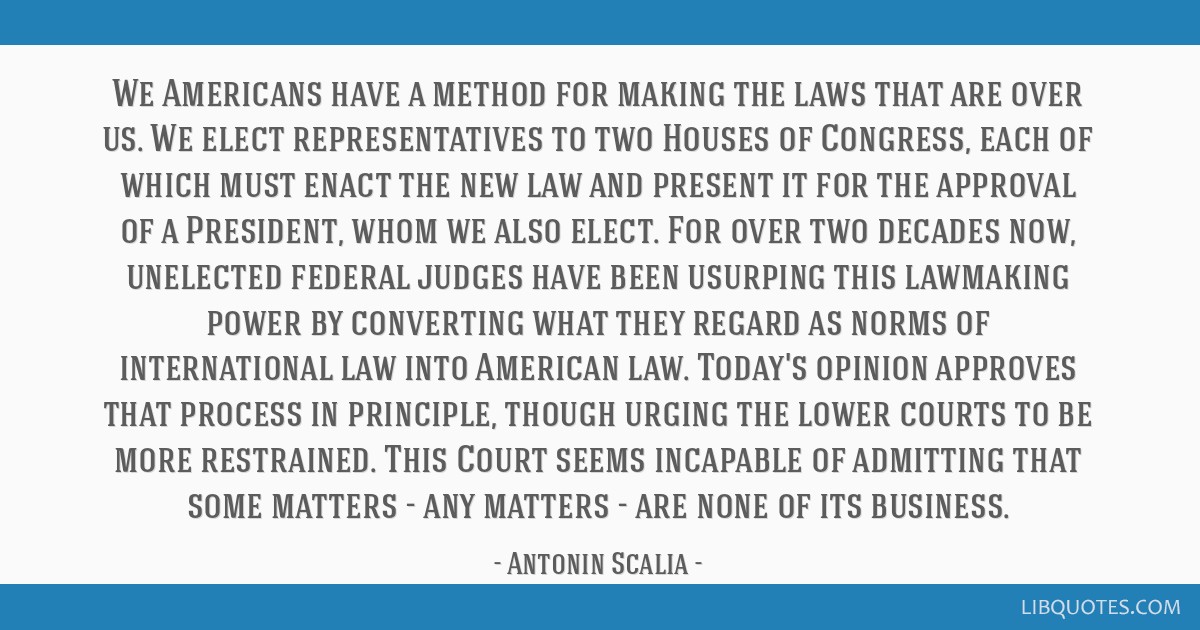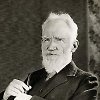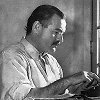We Americans have a method for making the laws that are over us. We elect representatives to two Houses of Congress, each of which must enact the new law and present it for the approval of a President, whom we also elect. For over two decades now, unelected federal judges have been usurping this lawmaking power by converting what they regard as norms of international law into American law. Today's opinion approves that process in principle, though urging the lower courts to be more restrained. This Court seems incapable of admitting that some matters - any matters - are none of its business.
Sosa v. Alvarez-Machain et al., 542 U. S. 692 (2004) (concurring in part and concurring in judgment)























